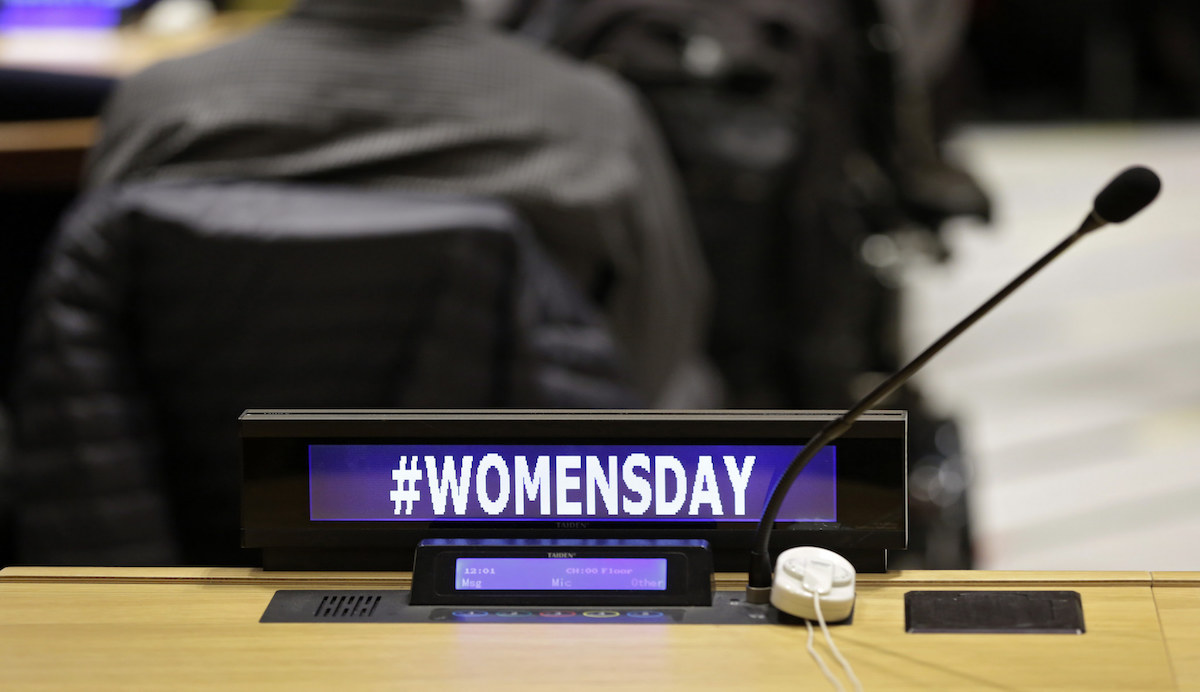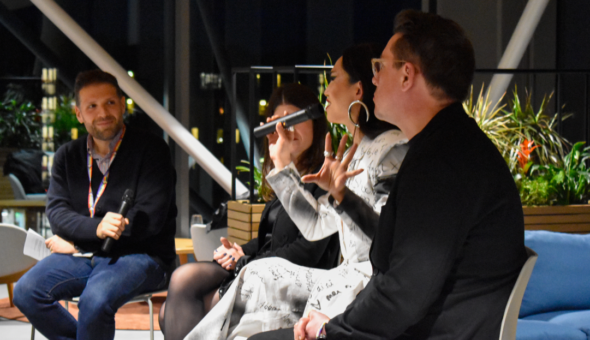Want to know what it is really like to be a woman leader in 2018? Get used to loneliness and mansplaining, keep your sense of self, and help the next generation to stick to their values. University of Bath School of Management Dean, Veronica Hope Hailey, offers a personal reflection on being a woman leader to mark International Women’s Day, as part our #PressforProgress month on gender parity.
I went up to University to study for my undergraduate degree in 1975 which also happened to be the year that the UK’s first Sex Discrimination Act was passed and the Equality Opportunities Commission was established. Brought up by a mother who, from a pretty poor background, had got into University in the 1930s, and educated myself in an all girls school the whole way through my school life, and enjoying what I now appreciate as unspoken support in my educational ambitions from a brother and father, I entered the world of business believing that ability, competence and hard work would get you where you wanted to go. I did not know what I wanted to do and was content that my own lack of direction might be a self crafted obstacle but I did not believe that my gender was going to be a problem. After all we had an Act of Parliament to protect us against gender discrimination. What could possibly go wrong?
I am sure I was not conscious of it at that time but looking back over my career I agree with Margaret Heffernan when, writing in her book The Naked Truth, she says that:
“Being smart and working hard are entry-level requirements. But they won’t protect you from the weird experience of being a business woman in a world that remains dominated by men and their values. The companies we see today were built by men for men. Reluctantly, grudgingly women were granted access – at first just to lowly positions but, when self interest was served, to more powerful positions. We called this progress. But everything comes at a price. The price was that we had to behave in ways that men could be comfortable with: we musn’t frighten them, threaten them, usurp them or in any way disturb their universe. “
As one reaches the top levels of management that is still and even more true. Despite working in an apparently more liberal non corporate environment than most senior women, I still have the experience of walking into some meetings or dinners or board meetings to find myself the only woman in the room. Or, if there are other women there, we are still a significant minority. “Mansplaining” remains rife. If you don’t know what that means, Google the feminist author Rebecca Solnit. As she says “Men explain things to me, still. And no man has ever apologised for explaining, wrongly, things that I know and they don’t.” In the face of mansplaining, I find there is the risk that in sticking up for myself with evidence of greater knowledge, I will be seen as difficult or boastful rather than more experienced.
So what helps me persist? A sense of the absurd, a sense of perspective and a sense of humour are important qualities for any senior manager. I also have the blessing of a large family and the most unlikely feminist husband one could encounter who has been 100% supportive of me as a person whether I want to be a mother, a rodeo rider or a vicar. He is my greatest critic and my greatest friend. So I am fortunate enough to have another life to fall back into when persisting just seems too hard in a very male senior environment.
Some final observations on being a woman leader. First, leadership can be a lonely and exposed place for anyone, but it can be particularly so for those who find themselves in a minority. Second, some of the pioneering women leaders of my generation have only succeeded, as Margaret Heffernan describes, by developing a Thatcher like carapace as part of their leadership style, taking on extreme versions of the dominant male stereotype. This does not really tackle the problem and, even if they take on these extreme characteristics, they will still never ever gain entry to the “boys club”.
Instead, those of us who are even modestly senior like me must try to maintain our sense of true self, use our positions now to promote the cause of the next generation of women and challenge bias (whether conscious or unconscious) when we see it. We also need to ensure that the new constellation of women stars have leadership development opportunities that enable them to achieve their full potential whilst maintaining an authenticity around their own set of values. (It’s certainly true that men can also suffer from stereotyping, yet they still tend not to also be in a minority numerically at senior levels.)
I am also acutely aware of my daughters and their friends, hopeful that their paths will be easier than mine, wanting to support their career journeys so that they are increasingly able to create organisations made by men and women as places where all genders can thrive. And thriving for me would mean that my daughters and and their partners can flourish in their workplaces without having to do daily combat with unconsciously held but biased expectations on how the two main sexes might contribute or should behave.
Professor Veronica Hope Hailey is Dean of the School of Management at the University of Bath and University Vice President for Corporate Engagement.
Header image by UN Women under licence CC BY-NC-ND 2.0




I find it strange that this article quotes text from a book published in 2004 and with "anecdotes" and contributions gleaned mainly from the 20th century. I think it would be far more useful to elicit contributions from some of the women in the UK and worldwide who are currently in true senior management and board positions in commerce and industry - e.g. FTSE100 companies. It would then be possible to undertake an informed discussion as to whether the way that companies are managed and run are due just to "male values" or due to the evolution of a successful business traits in a competitive world.
So refreshing to read this. I have always banged on about the fact that women still have a much tougher time than men in a business/working environment. When I was in my 20's, and in PR, I visited a new client to take a brief. I got back to my office feeling refreshed and with absolute clarity about what the client company was seeking. It had seemed to be so easy compared to other clients I handled. The realisation then came that this company was established by a woman, run by a woman and all the managers were women. I loathe the fact that historically women who get to the top have had to emulate male behaviour. Hopefully things are beginning to change but we still have a long way to go!